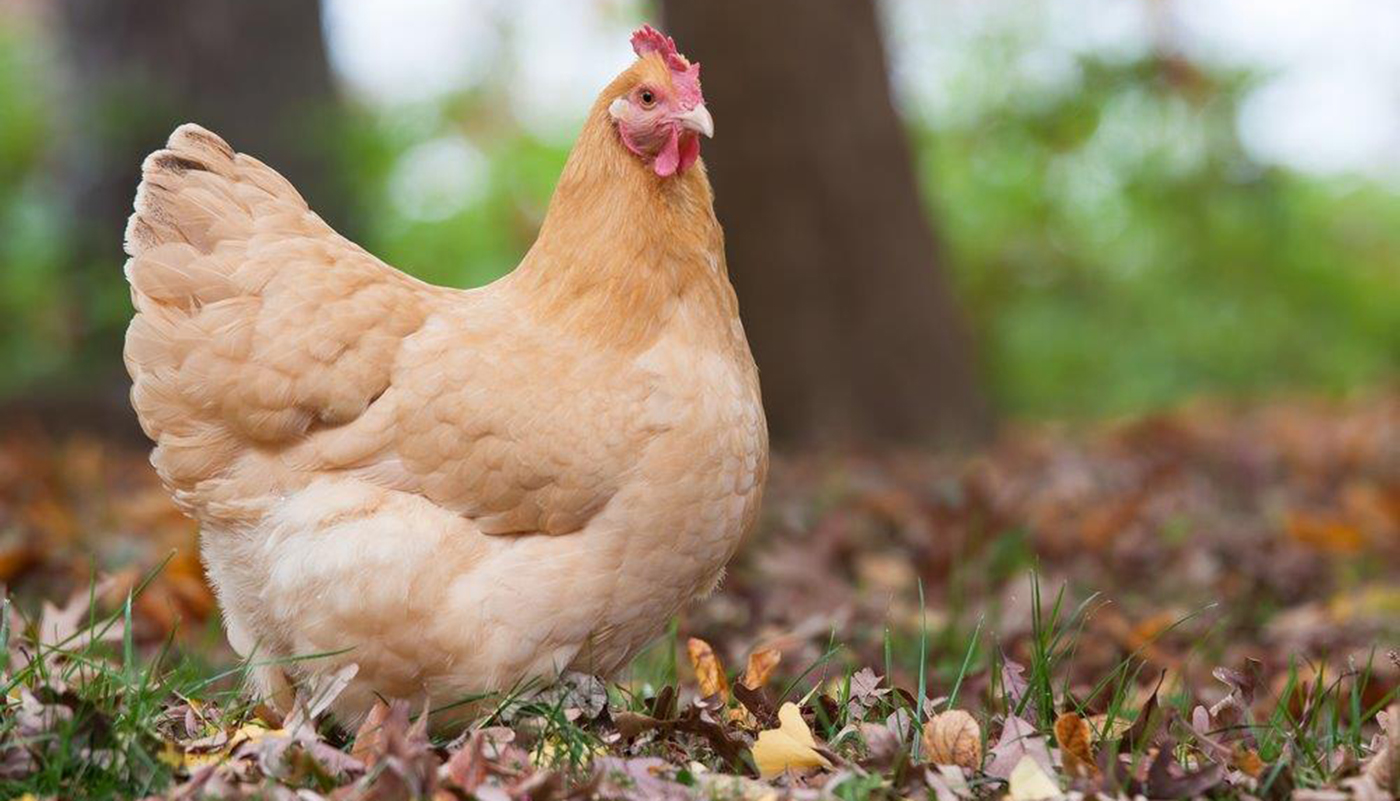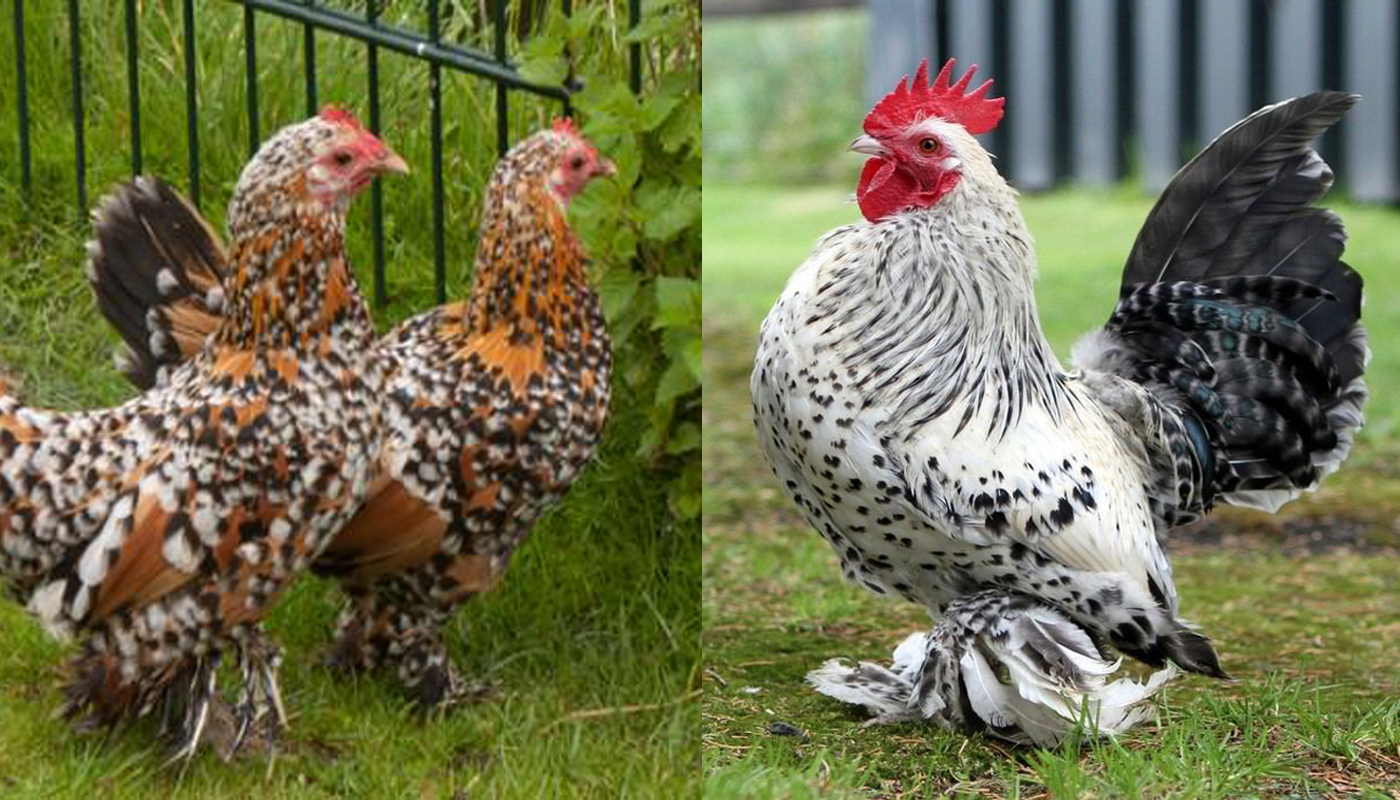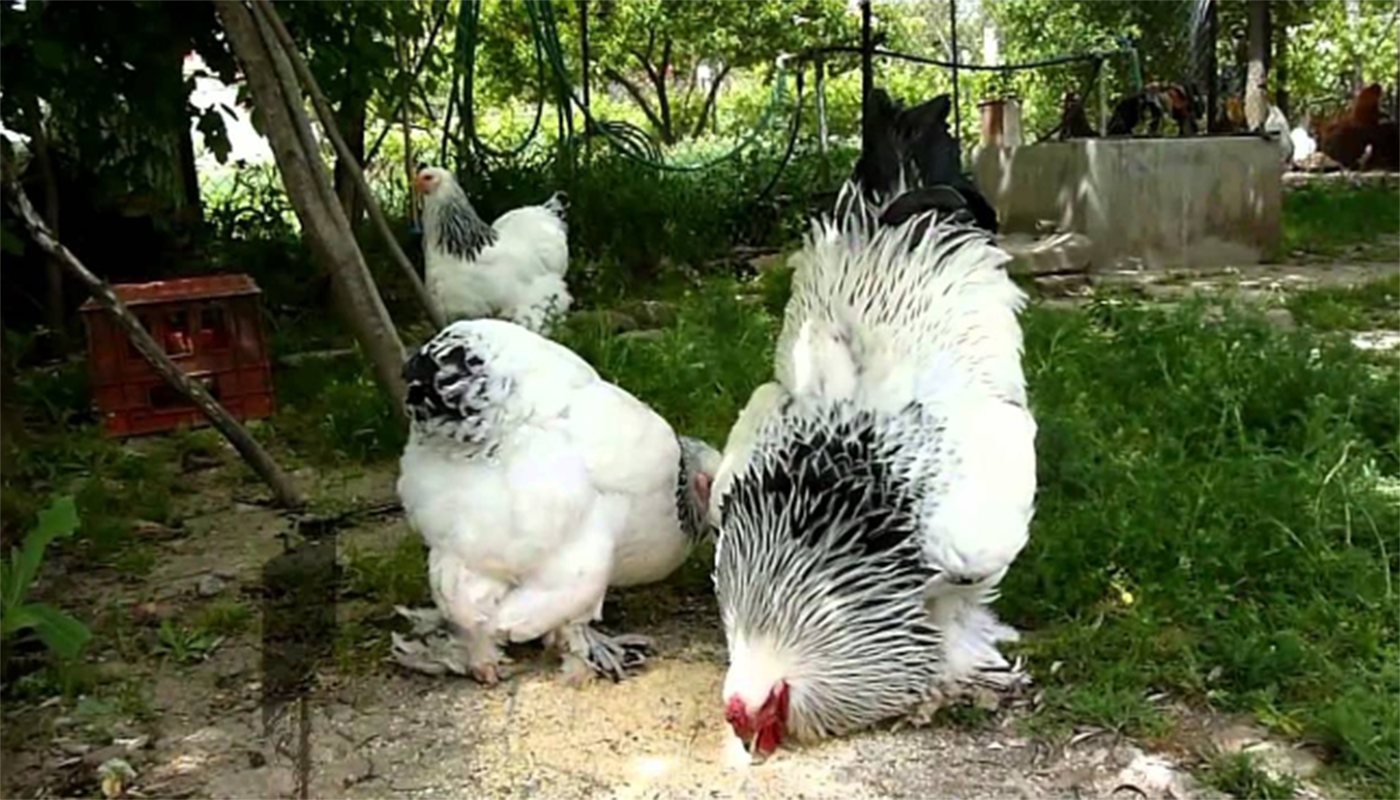Raising chickens can be a rewarding and enjoyable experience, whether you’re doing it for eggs, meat, or simply as pets. However, ensuring the health and well-being of your flock is essential for their happiness and productivity. This guide is designed to provide beginners with valuable tips and advice on how to keep their chickens healthy and thriving.
Choose Healthy Birds
Selecting healthy birds is crucial for establishing a thriving flock. Here are some key points to keep in mind when choosing your chickens:
- Source from Reputable Breeders or Hatcheries: Purchase chicks or pullets from breeders or hatcheries with a good reputation for quality and healthy stock. This reduces the risk of introducing diseases or genetic issues into your flock.
- Observe Activity and Alertness: Healthy chicks or pullets should be active and alert. They should be moving around, exploring their environment, and interacting with their surroundings. Avoid birds that appear lethargic or listless.
- Check Feathering: Well-feathered birds are a sign of good health. Look for chickens with smooth, clean feathers that cover their bodies evenly. Avoid birds with patchy or unkempt feathers, as this could indicate poor health or feather pecking issues.
- Assess Eyes and Nostrils: Bright, clear eyes are indicative of a healthy bird. Avoid chickens with dull, sunken, or watery eyes, as these can be signs of illness. Additionally, check for any discharge from the eyes or nostrils, which could indicate respiratory problems or infections.
- Inspect Vent Area: The vent area should be clean and free from fecal matter or signs of diarrhea. A dirty vent may indicate digestive issues or poor hygiene. Avoid birds with messy or soiled vents.
- Look for Signs of Injury or Deformity: Inspect the birds carefully for any signs of injury, such as cuts, bruises, or limping. Avoid birds with obvious deformities or abnormalities, as these can affect their quality of life and productivity.
By following these guidelines and selecting healthy birds, you can lay a strong foundation for a successful and thriving chicken flock. Regular observation and proactive care will help ensure the ongoing health and well-being of your chickens.
Provide Proper Housing
Proper housing is essential for the health and well-being of your chickens. Here’s how to provide them with a suitable living environment:
- Sturdy Coop Construction: Build or purchase a coop that is sturdy and secure, offering protection from predators such as foxes, raccoons, and birds of prey. Ensure that the coop is made from durable materials and has secure latches on doors and windows to prevent unauthorized entry. Regularly inspect the coop for any signs of wear or damage and repair as needed.
- Protection from Weather: Your coop should provide shelter from extreme weather conditions, including heat, cold, wind, and rain. Insulate the coop to help regulate temperature, and provide adequate ventilation to prevent moisture buildup and ammonia levels from rising. Install windows with screens or adjustable vents to allow for airflow while keeping predators out.
- Adequate Ventilation: Proper ventilation is crucial for maintaining good air quality inside the coop and preventing respiratory issues in your chickens. Ensure that the coop has vents positioned near the top to allow hot air and moisture to escape, while still providing protection from drafts. Regularly clean vents and remove any obstructions to ensure optimal airflow.
- Space Requirements: Chickens need enough space to move around comfortably and engage in natural behaviors such as perching, scratching, and dust bathing. Provide a minimum of 2-4 square feet of indoor space per chicken in the coop, and 8-10 square feet per chicken in the outdoor run. Overcrowding can lead to stress, aggression, and an increased risk of disease transmission, so ensure that your flock has plenty of room to roam.
- Nesting Boxes and Roosts: Install nesting boxes filled with clean bedding material for your hens to lay their eggs. Provide one nest box for every 3-4 hens, and regularly clean and replace the bedding to maintain cleanliness. Install roosts or perches at varying heights to accommodate all of your chickens, allowing them to rest comfortably off the ground at night.
By providing your chickens with a secure, well-ventilated coop and ample space to move around, you can create a safe and comfortable living environment that promotes their health and happiness. Regular maintenance and observation will help ensure that your coop remains in good condition and continues to meet the needs of your flock.
Maintain Cleanliness
Maintaining cleanliness in your chicken coop and outdoor area is essential for preventing the spread of disease and keeping your flock healthy. Here’s how to do it effectively:
- Regular Cleaning and Disinfection:
- Clean the coop and nesting boxes on a regular basis to remove droppings, dirt, and debris. Use a shovel, rake, or scraper to remove soiled bedding and waste.
- Disinfect the coop and nesting boxes periodically using a poultry-safe disinfectant. Follow the manufacturer’s instructions for dilution and application to ensure effectiveness.
- Pay special attention to areas where moisture tends to accumulate, as these can harbor bacteria and fungi. Thoroughly clean and disinfect waterers, feeders, and any other equipment regularly.
- Bedding Replacement:
- Replace bedding material in the coop and nesting boxes regularly to maintain cleanliness and absorb moisture. Materials such as straw, wood shavings, or sand are suitable options.
- Add fresh bedding as needed to keep nesting boxes clean and comfortable for your hens. Ensure that nesting boxes are dry and free from mold or mildew.
- Outdoor Area Maintenance:
- Keep the outdoor area surrounding the coop clean and free of standing water, feces, and debris. Regularly rake or sweep the area to remove waste and prevent the buildup of bacteria.
- Rotate grazing areas periodically to prevent overgrazing and maintain healthy pasture conditions. Consider using a movable chicken tractor or fencing off different sections of your yard for rotational grazing.
- Monitor for signs of pests such as flies, ants, or rodents, and take measures to control them if necessary. Use traps, baits, or natural deterrents to keep pests at bay without harming your chickens.
- Water Management:
- Ensure that waterers are kept clean and filled with fresh, clean water at all times. Clean waterers regularly to remove algae, dirt, and debris that can harbor bacteria.
- Provide shade and shelter in the outdoor area to protect your chickens from extreme weather conditions such as heat, cold, or rain. Consider installing tarps or awnings to provide additional protection during inclement weather.
By following these guidelines for cleanliness and maintenance, you can create a clean and healthy environment for your chickens to thrive in. Regular cleaning and disinfection, along with proper bedding management and outdoor area maintenance, are essential for preventing the spread of disease and promoting the well-being of your flock.
Balanced Nutrition
Balanced nutrition is crucial for the health and productivity of your chickens. Here’s how to ensure your flock receives the nutrients they need:
- Provide a Balanced Diet:
- Offer a complete and balanced chicken feed formulated specifically for the needs of your flock. Choose a feed appropriate for the age and purpose of your chickens, whether they are laying hens, broilers, or growing chicks.
- Commercial feeds typically come in different formulations, such as starter, grower, and layer feeds, to meet the nutritional requirements of chickens at different stages of life. Follow the manufacturer’s recommendations for feeding amounts and schedules.
- If you prefer to make your own feed mix, consult with a poultry nutritionist or veterinarian to ensure that it meets the nutritional needs of your chickens. Homemade feeds may include grains, protein sources (such as soybean meal or fish meal), vitamins, and minerals.
- Provide Access to Fresh Water:
- Ensure that your chickens have access to fresh, clean water at all times. Water is essential for digestion, temperature regulation, and overall health.
- Clean and refill waterers daily to prevent contamination with dirt, feces, or algae. Use waterers that are designed to prevent spills and keep water clean.
- Offer Occasional Treats in Moderation:
- While commercial feed provides the bulk of your chickens’ nutrition, offering occasional treats can add variety to their diet and provide enrichment.
- Offer treats such as fruits (e.g., apples, berries), vegetables (e.g., leafy greens, carrots), and protein-rich snacks (e.g., mealworms, scrambled eggs) in moderation.
- Avoid feeding excessive amounts of treats, as this can lead to nutritional imbalances and obesity. Treats should make up no more than 10% of your chickens’ total diet.
- Supplement as Needed:
- Monitor your flock for signs of nutritional deficiencies or imbalances, such as poor growth, feathering issues, or decreased egg production.
- Consider supplementing their diet with additional vitamins or minerals as needed, especially during times of stress or high energy demand (e.g., molting, cold weather).
- Consult with a poultry nutritionist or veterinarian if you have concerns about your chickens’ diet or nutritional status.
By providing a balanced diet, access to clean water, and occasional treats in moderation, you can ensure that your chickens receive the nutrients they need to thrive. Regular monitoring and adjustments to their diet as needed will help keep your flock healthy and productive.
Preventive Healthcare
Preventive healthcare is key to keeping your chicken flock healthy and thriving. Here’s how to ensure their well-being:
- Regular Health Checks:
- Schedule regular health checks for your flock to monitor their overall condition, including body weight, feather quality, and behavior.
- Inspect individual birds for signs of illness or injury, such as abnormal droppings, lethargy, respiratory symptoms, or abnormal posture.
- Promptly address any signs of illness or injury by isolating affected birds, providing supportive care, and consulting with a veterinarian if necessary.
- Vaccination Program:
- Work with your veterinarian to develop a vaccination program tailored to the specific diseases prevalent in your area and the needs of your flock.
- Vaccinate chicks and pullets against common poultry diseases such as Marek’s disease, Newcastle disease, infectious bronchitis, and fowl pox.
- Follow the recommended vaccination schedule and ensure that vaccines are administered correctly to provide optimal protection for your chickens.
- Biosecurity Measures:
- Practice good biosecurity measures to prevent the introduction and spread of diseases within your flock.
- Limit exposure to wild birds, rodents, and other potential carriers of disease by securing the perimeter of your coop and run.
- Quarantine new birds before introducing them to your existing flock to prevent the spread of infectious diseases.
- Use separate equipment and clothing when caring for sick or quarantined birds to prevent cross-contamination.
- Implement strict hygiene practices, such as handwashing and disinfection of equipment and footwear, to minimize the risk of disease transmission.
- Parasite Control:
- Implement a regular parasite control program to prevent infestations of external parasites such as mites and lice.
- Use poultry-safe products to treat and control parasites, following the manufacturer’s instructions for dosage and application.
- Monitor your flock regularly for signs of parasitic infestation, such as feather loss, irritation, or anemia, and treat as needed.
By following these preventive healthcare measures, you can help keep your chicken flock healthy and resilient against common diseases and health challenges. Regular monitoring, vaccination, biosecurity, and parasite control are essential components of a comprehensive healthcare program for your chickens.
Monitor Behavior and Appearance
Monitoring your chickens’ behavior and appearance is essential for early detection of health issues and maintaining their well-being. Here’s how to effectively monitor them:
- Behavioral Changes:
- Keep an eye on your chickens’ behavior on a daily basis. Look for any deviations from their normal activities, such as decreased activity levels, lethargy, reluctance to move, or abnormal posture.
- Note any changes in appetite or drinking habits. A sudden decrease in food or water intake could indicate illness or stress.
- Listen for unusual vocalizations, such as excessive vocalizing, wheezing, coughing, or sneezing, which may signal respiratory issues.
- Parasite Inspection:
- Regularly inspect your chickens for signs of parasites, including mites, lice, and worms. Look for parasites in areas such as under the wings, around the vent, and on the skin.
- Check for symptoms of parasitic infestations, such as feather loss, irritated skin, pale comb and wattles, or abnormal behavior such as excessive scratching or pecking.
- If you suspect a parasite infestation, take immediate action to treat your chickens using poultry-safe products recommended by your veterinarian.
- Egg Production and Shell Quality:
- Monitor your chickens’ egg production and quality regularly. Keep track of the number of eggs laid per day and any changes in egg size, color, or shell quality.
- Inspect eggs for abnormalities such as thin shells, rough textures, or irregular shapes, which may indicate nutritional deficiencies or underlying health issues.
- A sudden decrease in egg production or poor egg quality could be a sign of stress, illness, or reproductive problems in your flock.
- Plumage Condition:
- Assess the overall condition of your chickens’ plumage regularly. Look for signs of feather loss, damage, or abnormalities such as matted feathers or bare patches.
- Healthy chickens should have clean, glossy feathers that cover their bodies evenly. Poor feather quality may indicate nutritional deficiencies, stress, or underlying health issues.
- Pay attention to molting patterns and monitor the regrowth of feathers after molting. Provide supplemental nutrition and care during molting periods to support healthy feather regrowth.
By regularly monitoring your chickens’ behavior, appearance, and egg production, you can quickly identify any signs of health problems and take appropriate action to address them. Early detection and intervention are key to maintaining the health and well-being of your flock.
Provide Enrichment
Providing enrichment for your chickens is essential for their mental and physical well-being. Here are some ways to enrich their environment:
- Outdoor Access:
- Allow your chickens access to outdoor areas where they can forage, scratch, and engage in natural behaviors. This allows them to explore, exercise, and fulfill their instinctual needs.
- Create a secure outdoor run or free-range area where your chickens can safely roam and explore. Use fencing or netting to protect them from predators.
- Provide access to grassy areas, dirt patches, and vegetation for foraging, dust bathing, and pecking. Consider planting chicken-friendly herbs and plants for additional enrichment.
- Perches and Roosts:
- Install perches and roosts inside the coop and outdoor area to provide elevated resting spots for your chickens. Perching is a natural behavior that allows chickens to rest, socialize, and observe their surroundings.
- Use natural branches or wooden beams as perches, varying the height and thickness to accommodate different preferences and abilities.
- Place perches at different levels to encourage chickens to explore and use the vertical space in their environment.
- Other Forms of Enrichment:
- Provide toys and objects for chickens to peck, explore, and interact with. This can include hanging cabbage or other vegetables, suspended mirrors, or DIY foraging toys filled with treats.
- Scatter treats and scratch grains in the outdoor area to encourage natural foraging behaviors and stimulate mental activity.
- Offer occasional novel items such as cardboard boxes, piles of leaves, or straw bales for chickens to investigate and explore.
- Rotate Grazing Areas:
- Rotate grazing areas regularly to prevent overgrazing and maintain a healthy environment. This helps to prevent soil depletion, control parasites, and promote the growth of fresh vegetation.
- Use movable fencing or chicken tractors to divide your outdoor space into smaller sections and rotate your flock to different areas periodically.
- Allow grazed areas to rest and regenerate before reintroducing chickens, ensuring a sustainable and healthy environment for your flock.
By providing outdoor access, perches, enrichment toys, and rotating grazing areas, you can enhance the well-being of your chickens and encourage natural behaviors. Enriched environments promote physical activity, mental stimulation, and overall contentment in your flock.
Conclusion
By following these tips for keeping your chickens healthy, you can ensure that your flock remains happy, productive, and free from common health issues. Remember to observe your birds regularly, provide proper care and nutrition, and seek veterinary assistance when needed to maintain a thriving chicken flock.
 Chicken Breeds that Lay Brown, Blue, Green, Olive, Pink or Different Colors
Chicken Breeds that Lay Brown, Blue, Green, Olive, Pink or Different Colors Orpington Chicken Breed – Everything You Need to Know
Orpington Chicken Breed – Everything You Need to Know Easter Egger Chicken Breed – Everything You Need to Know
Easter Egger Chicken Breed – Everything You Need to Know Onagadori Chicken Breed – Everything You Need to Know
Onagadori Chicken Breed – Everything You Need to Know FACTS ABOUT HATCHING EGGS – HATCHING EGGS PART 4
FACTS ABOUT HATCHING EGGS – HATCHING EGGS PART 4 CHICKEN DISEASES THAT EVERY CHICKEN OWNER SHOULD BE AWARE OF
CHICKEN DISEASES THAT EVERY CHICKEN OWNER SHOULD BE AWARE OF Booted Bantam Chicken Breed – Everything You Need to Know
Booted Bantam Chicken Breed – Everything You Need to Know Old English Game Chicken Breed – Everything You Need to Know
Old English Game Chicken Breed – Everything You Need to Know Orloff Chicken Breed – Everything You Need to Know
Orloff Chicken Breed – Everything You Need to Know The Ins and Out of the Chicken coop
The Ins and Out of the Chicken coop Andalusian Chicken Breed – Everything You Need to Know
Andalusian Chicken Breed – Everything You Need to Know Brahma Chicken Breed – Everything You Need to Know
Brahma Chicken Breed – Everything You Need to Know